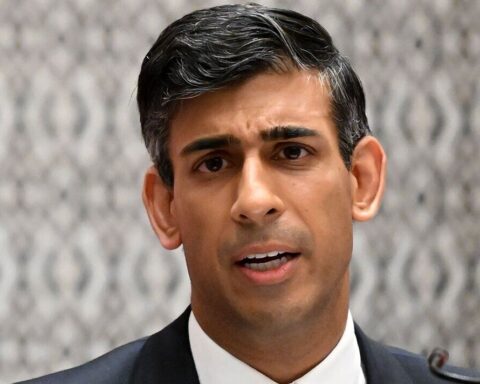LONDON (Parliament Politics Magazine) – As the last round of the campaign for Number 10 begins, Liz Truss has expanded her lead against Rishi Sunak among Conservative members.
According to a YouGov poll conducted on Wednesday evening and Thursday morning, among those who would vote, the foreign secretary would defeat the former chancellor by a margin of 62 percent to 38 percent. The advantage is now 24 percentage points, up from 20 points two days before.
This is noteworthy since the Sunak campaign said they had some momentum and were reducing the gap when the previous survey was released on Tuesday, but this one shows the opposite.
The most recent poll says 15% of respondents claimed they were undecided on their vote.
In every age group, among men and women, and among Brexit supporters, Truss triumphs against Sunak. Rishi Sunak defeats Truss in only one group of 2016 Remain voters. Given that Sunak advocated for Brexit while Truss supported remain during the referendum, this is a startling turnabout.
This represents a remarkable turnabout for Mr. Sunak who, according to polling, is now the underdog among the Tory membership after leading during the five rounds of MP voting.
Truss’s lead is less than that of Boris Johnson, who defeated Jeremy Hunt by a margin of 74 percent to 26 percent in the beginning of Tory leadership battle in 2019 and won 66% to 34%.
The poll also reveals the divisions among the Conservative Party. 18 percent believe Truss cannot be trusted, compared to 40 percent who believe Sunak cannot be trusted. In addition, 42 percent believe Sunak would make a poor leader while 31 percent believe Truss would.
This implies that Sunak might have trouble bringing the party together after the leadership election is done. This outcome further demonstrates that the Tory membership is being affected by the criticisms made by Nadine Dorries, Jacob Rees-Mogg, and some media outlets.
730 Conservative Party members were interviewed by YouGov on Wednesday night and Thursday morning.
Truss’s policies could result in lower public spending, says the Institute for Fiscal Studies
The Institute for Fiscal Studies believes Liz Truss’ tax and spending plans could result in more borrowing or decreased public spending.
The thinktank, in its most recent assessment stated that the foreign secretary was suggesting something considerably different from Rishi Sunak with tax cuts totaling more than £30 billion annually.
The assurances will have implications outside the tax system, it continued, adding that they “remain unclear.”
The report stated that they would result in increased borrowing, decreased public spending, or a combination of both. The tax promises would probably result in breaking the current budgetary rules without spending cuts, and Ms. Truss had hinted that the fiscal rules might change.
In that context, it was crucial to always keep in mind that, whatever set of self-imposed fiscal restrictions may permit in the short term, lower taxes ultimately did result in lower spending.
Although a new expenditure review has been announced, it was unclear whether present plans would be increased or decreased, with the exception of defence, where Ms. Truss had pledged a £23 billion budget rise by the end of the decade, it said.






